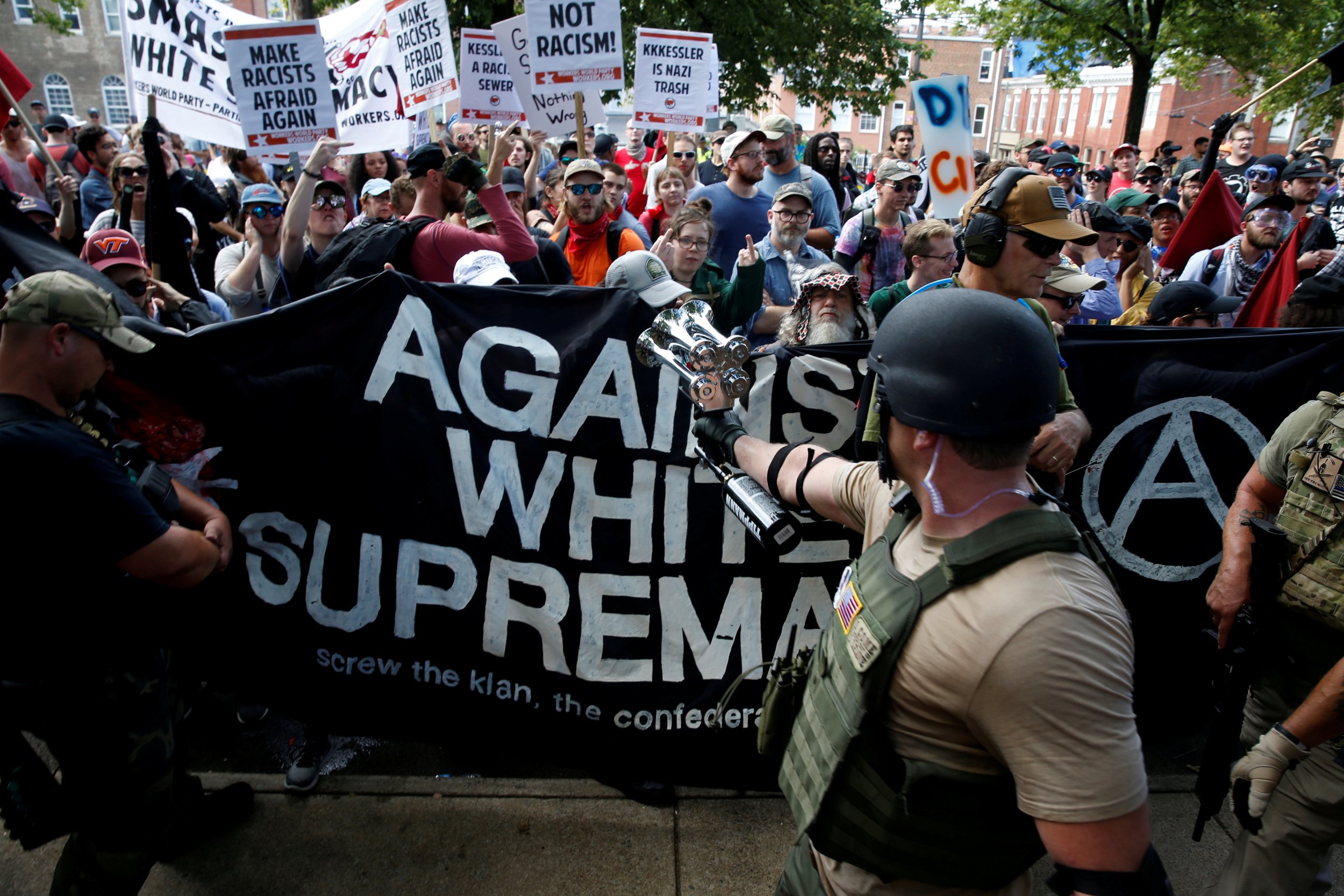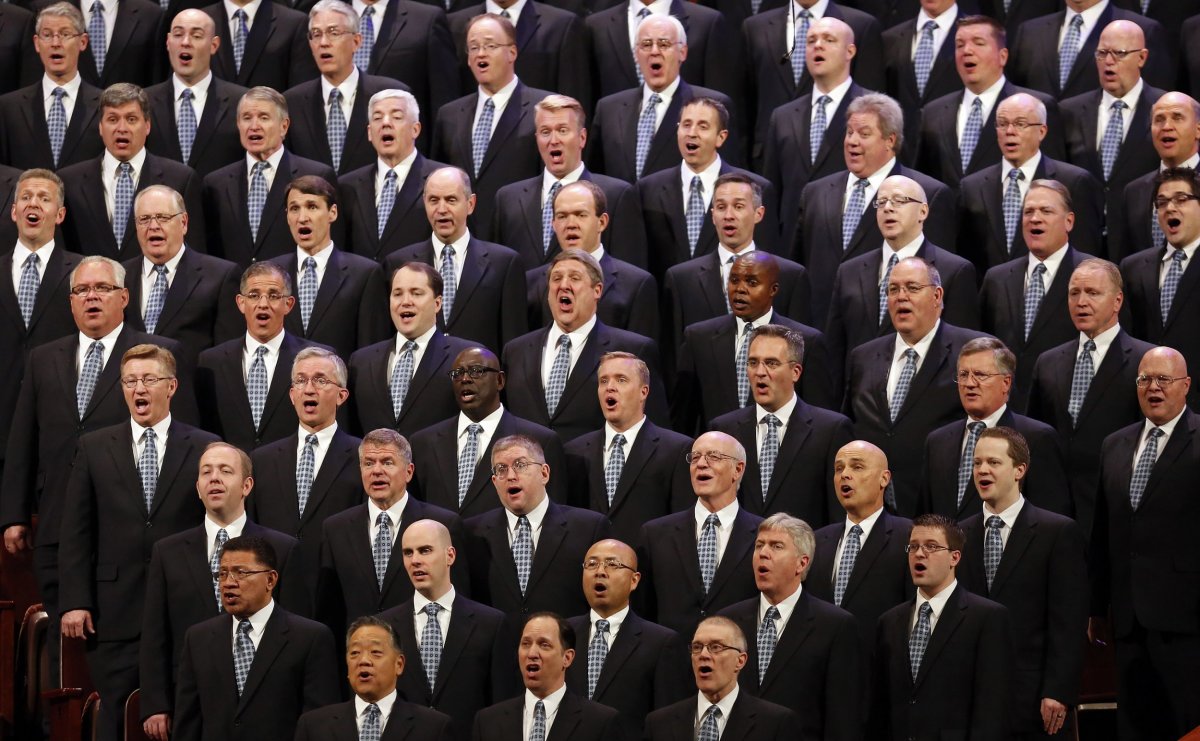
The Church of Jesus Christ of Latter-Day Saints (LDS) found itself in a difficult situation following the weekend's events in Charlottesville.
The LDS church was quick to express its "great sadness and deep concern" at the violence and "increase of intolerance" typified by the clashes between white supremacists and counter-protesters in Charlottesville in a statement it issued on Sunday.
The church also explicitly condemned racism, citing the teachings of its former president Gordon B. Hinckley that "no man who makes disparaging remarks concerning those of another race can consider himself a true disciple of Christ."
But two days later on Tuesday, the Mormon church issued an update after it came to the church's attention that some among pro-white and white supremacy communities "assert that the church is neutral toward or in support of their views."
"Nothing could be further from the truth," said the LDS church in the updated statement, which quoted from the New Testament and the Book of Mormon to make the point that all people are equal in the eyes of God.
"White supremacist attitudes are morally wrong and sinful and we condemn them," it said. "Church members who promote or pursue a 'white culture' or white supremacy agenda are not in harmony with the teachings of the church."
The church appears to have been forced to clarify its position after some white nationalists claimed its support.
A controversial Mormon blogger, Ayla Stewart, has been among the most vocal proponents of so-called "white culture" within the church. Stewart was scheduled to speak at the Unite the Right rally in Charlottesville on Saturday, but pulled out due to security concerns, she said in a YouTube video.
Stewart was not named directly in the LDS statement, but the blogger responded by claiming that the Mormon church was abandoning whites. Stewart also tweeted: "I don't listen to the church's PR department, have someone from the first presidency tell me I can't love my culture, then we'll talk." The First Presidency is the highest tier of Mormon leadership.
In the Mormon church..
— Wife With A Purpose (@apurposefulwife) August 15, 2017
Asian culture✅
Black culture✅
Arab culture✅
Latino culture✅
Jewish culture✅
White culture❌
This is not God's way.
I don't listen to the church's PR department, have someone from the first presidency tell me I can't love my culture, then we'll talk. https://t.co/spnfjFkoYJ
— Wife With A Purpose (@apurposefulwife) August 16, 2017
Stewart has expressed support for white supremacist groups such as Identity Evropa —a white supremacist group that opposes immigration and was involved in the Charlottesville demonstration—and tweets using hashtags such as #WhiteCulture and #EuropeanCulture.
In a video explaining her decision to pull out of the Charlottesville rally, Stewart said that the violence had been sparked "not because of the alt-right, not because of some mythical 'Nazis' that everybody wants to talk about, but because of antifa and because of the police and because of the city management going on in Charlottesville." Antifa is a term used to describe left-wing, anti-fascist protesters who use extremist methods, including violence.
One person, Heather Heyer, was killed during the protests after white nationalist James Alex Fields Jr drove a car into a crowd of counter-protesters, leading to a charge of second-degree murder.
Many in the Mormon community welcomed the church taking a stance against white supremacists. "Black members of the church as well as other members of color have waited and prayed for the day the church would take a stand against white supremacist bigotry, and in doing so the church has clearly aligned itself completely with the teachings of Christ," Mica McGriggs, a black Mormon post-doctoral fellow at Columbia University Medical Center, told HuffPost.

Mormonism has a difficult history with race. The church's founder, Joseph Smith, ordained black pioneers around the time of its foundation in 1830.
But following Smith's death, his successor Brigham Young proscribed the ordination of black men as priests in the church and discouraged interracial marriage. In an 1852 speech, described himself as a "firm believer in slavery" and said that black people had been subjected to "severe curses" that could only be lifted by God.
It was only in 1978 that the church, then led by Spencer W. Kimball, announced that it would reverse racial restriction policies following a "revelation." Since then, the LDS church has opened ordination to men of any race and opposed racism. An official statement posted to the church's website in 2012 states that "the gospel of Jesus Christ is for everyone" and that "people of all races have always been welcomed and baptized into the church since its beginning."
The church currently has 15.9 million members worldwide; one-third of these are in the United States, but the church does have growing congregations in parts of Africa, including more than 150,000 members in Nigeria. In 2008, about 3 percent of American Mormons were black, according to the Washington Post.
Uncommon Knowledge
Newsweek is committed to challenging conventional wisdom and finding connections in the search for common ground.
Newsweek is committed to challenging conventional wisdom and finding connections in the search for common ground.
About the writer
Conor is a staff writer for Newsweek covering Africa, with a focus on Nigeria, security and conflict.
To read how Newsweek uses AI as a newsroom tool, Click here.








